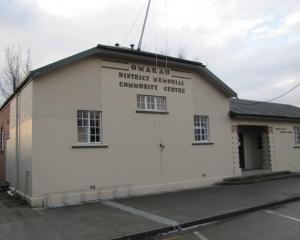Central Otago and the wider district needs to look at potential spin-offs from a proposed hydro storage scheme at Lake Onslow to avoid the boom-and-bust cycles of the past.
That is the view of Waikato University Associate Prof Earl Bardsley after the Government announced several firms had been awarded a contract to help with the feasibility investigation into the centrepiece of the NZ Battery Project, Lake Onslow.
Minister of Energy and Resources Dr Megan Woods yesterday confirmed the about $11.5million contract was granted to a consortium, Te Ropu Matatau.
To be led by Auckland firm Mott MacDonald New Zealand, with engineering consultancy firm GHD, and environmental planning and design consultancy Boffa Miskell, the consortium will investigate pumped hydro at the lake against other possible energy storage solutions to New Zealand’s dry-year electricity problem.
Prof Bardsley, the academic who first saw the potential of Lake Onslow, said the announcement meant progress but as the plan bore more fruit it was important to look at other opportunities.
‘‘As Onslow starts to firm up, Otago should look to what it can get out of it long-term — environmental mitigations and water resource use.’’
That included the potential for sustained development ‘‘not just another period of boom and then depart, like Roxburgh and Clyde’’, he said.
The Clyde Dam construction in the 1980s brought with it large-scale investment into Central Otago, initially in the form of hundreds of construction workers, and was a repeat of the scenario that played out with the building of the Roxburgh Dam three decades earlier.
Dr Woods said the contract represented a major milestone as it began the targeted engineering, environmental planning and geotechnical feasibility investigation for Lake Onslow.
The fieldwork was likely to include drilling boreholes in order to understand the geology, to find the best place for a potential underground powerhouse and the best route for a tunnel, Dr Woods said.
“This work, along with the environmental and cultural investigations already under way, will give a better picture of the feasibility and costs of the Lake Onslow storage scheme.’’
The NZ Battery Project is focusing on the lake compared to other options to help alleviate New Zealand’s dry-year electricity problem, when hydro catchments are low and fossil fuels are burnt to generate electricity to cover the shortfall.
The alternative being explored for Lake Onslow is pumped hydro storage, transferring water between two reservoirs at different heights.
Water in the upper reservoir effectively acts as a ‘‘battery’’, as it can be released to generate electricity when it is needed during times of high demand or during dry years.












